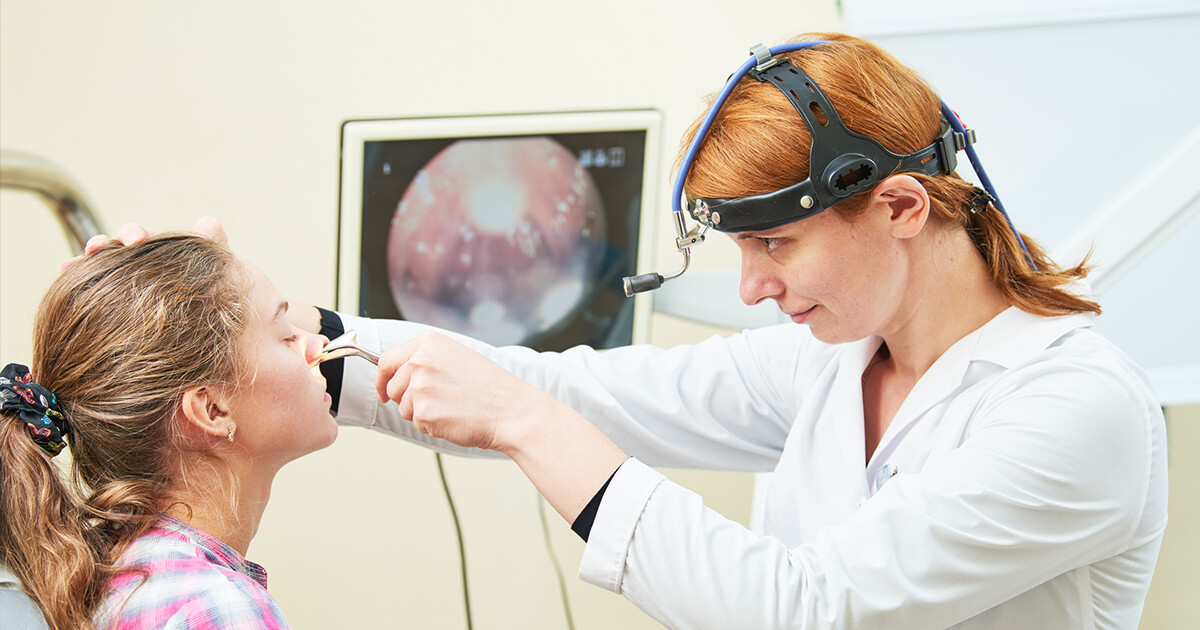Why You Need a Hearing Test with a Certified Hearing Professional
Wiki Article
Checking out the Field of Otolaryngology: What to Anticipate When You Get In Touch With an ENT
Otolaryngology, typically referred to as ENT, encompasses the medical diagnosis and therapy of nose, throat, and ear disorders. For those experiencing associated problems, seeking advice from an ENT specialist can provide clearness and relief. Understanding what to expect during such appointments is crucial for reliable communication and treatment. This summary will certainly describe crucial elements of the ENT experience, consisting of common factors for check outs and the processes associated with medical diagnosis and treatment.
Understanding Otolaryngology: An Overview
Otolaryngology, typically described as ENT (Ear, Nose, and Throat) medication, is a customized branch of medication that concentrates on the diagnosis and therapy of problems impacting these vital locations of the body. This area includes a vast array of problems, including those pertaining to hearing, balance, respiratory system feature, and speech. Otolaryngologists are trained to manage both surgical and clinical treatments, using innovative methods and modern technologies. Their experience expands past traditional ailments, addressing issues such as allergic reactions, sinus infections, and hearing loss. Additionally, they play a crucial function in the administration of head and neck cancers, giving extensive treatment customized to private patient needs. On the whole, otolaryngology continues to be necessary for keeping wellness and lifestyle in affected people.Common Factors to See an ENT Professional
Many people seek the knowledge of an ENT professional for a selection of reasons, reflecting the diverse nature of conditions that influence the throat, ear, and nose. Typical issues consist of persistent sinusitis, which frequently causes consistent nasal congestion and face discomfort. Allergic reactions and their connected signs, such as sneezing and itching, also prompt visits to these experts (Sinus). Hearing loss, whether progressive or unexpected, is another substantial reason for examination. Furthermore, individuals may seek analysis for throat conditions, consisting of consistent hoarseness or ingesting difficulties. Sleep apnea, identified by disrupted breathing during sleep, is frequently dealt with by ENT specialists. Each of these conditions highlights the importance of specialized treatment in managing complex ENT-related health problems
Preparing for Your ENT Visit
When getting ready for an ENT visit, it is necessary to gather relevant information and think about any particular worries. Individuals ought to assemble an in-depth case history, consisting of previous ear, nose, or throat issues, surgeries, and current drugs. Recording symptoms-- such as period, regularity, and severity-- can offer beneficial understandings for the ENT specialist. In addition, people ought to prepare a checklist of inquiries they want to ask, guaranteeing that all problems are dealt with throughout the visit. Bringing along any appropriate clinical documents or examination results can further aid the ENT in understanding the individual's condition. Finally, clients ought to validate their consultation information, including area, date, and time, to lessen any final complication. Correct preparation can enhance the efficiency of the consultation and bring about better outcomes.What to Expect During the Assessment
As the examination starts, the client can expect to participate in a detailed discussion with the ENT expert regarding their signs and symptoms and case history. The specialist will certainly ask about the period, frequency, and seriousness of signs such as hearing loss, nasal congestion, or aching throat. Additionally, the patient's previous medical problems, drugs, and any kind of pertinent family members history will be assessed, assisting the specialist in creating a full understanding of the person's health. The ENT might also ask concerning lifestyle factors, such as exposure to irritants or toxic irritants. This open dialogue establishes a foundation for the examination, making certain that the client's issues are dealt with and establishing the stage for any needed evaluations or referrals for therapy.
Analysis Examinations and Procedures in Otolaryngology
A series of diagnostic tests and procedures are essential in otolaryngology to properly examine and identify conditions impacting the ear, nose, and throat. Usual tests include audiometry, which determines hearing function, and tympanometry, assessing middle ear pressure. Nasal endoscopy permits visualization of the nasal passages and sinuses, while laryngoscopy examines the throat and vocal cables. Imaging methods, such as CT scans and MRIs, provide thorough views of head and neck structures. Allergy screening may additionally be performed to determine triggers for sinus or respiratory system issues. These analysis devices allow ENT experts to develop a complete understanding of clients' problems, ensuring tailored and reliable management strategies. Proper diagnosis is necessary for effective treatment results in otolaryngology.Treatment Alternatives Provided by ENT Specialists
ENT professionals use a range of treatment alternatives tailored to address particular conditions affecting the nose, ear, and throat. These treatments vary Sinus from conservative techniques, such as medicine and way of living adjustments, to even more intrusive procedures. Allergic reactions may be managed with antihistamines or immunotherapy, while chronic sinusitis may require nasal corticosteroids or sinus surgical treatment. For hearing loss, ENT professionals commonly suggest listening devices or medical treatments like cochlear implants. In cases of throat problems, alternatives can include speech treatment or surgeries to get rid of obstructions. Additionally, they might supply guidance for managing rest apnea, including making use of CPAP tools or surgical treatments. In general, the goal is to enhance individuals' lifestyle with personalized care and efficient treatment techniques.When to Seek Follow-Up Care With an ENT
Identifying when to look for follow-up treatment with an ENT professional is crucial for managing ongoing signs or issues connected to nose, throat, and ear conditions. People must consider setting up a follow-up consultation if signs continue regardless of initial therapy, such as chronic ear discomfort, nasal congestion, or throat pain. Modifications in hearing, equilibrium concerns, or unusual nasal discharge might likewise require further assessment. In addition, if an individual experiences negative effects from suggested drugs or has gone through an operation, follow-up care is very important to monitor healing and address any problems. Prompt assessments can ensure reliable monitoring of conditions, prevent prospective difficulties, and give comfort concerning one's health and wellness. Looking for follow-up care promotes positive health and wellness monitoring in otolaryngology.Regularly Asked Inquiries

What Credentials Should I Try to find in an ENT Professional?
When looking for an ENT expert, one should try to find board qualification, relevant experience, and solid patient testimonials. Additionally, reliable communication abilities and a thoughtful method can greatly enhance the overall therapy experience.Just how Do I Select the Right ENT for My Needs?
Choosing the appropriate ENT expert includes evaluating their credentials, experience, and client testimonials (ENT). It is necessary to consider their communication style and strategy to therapy, guaranteeing they line up with the person's particular health and wellness requirements and preferencesExist Any Kind Of Threats Related To ENT Procedures?
The risks connected with ENT treatments may include infection, blood loss, anesthetic complications, and prospective damage to surrounding structures. Patients ought to talk about these threats with their doctor to recognize individual concerns and assurance informed decisions.Just How Can I Take Care Of Anxiety Prior To My ENT Visit?
To manage anxiety prior to a consultation, individuals can exercise deep breathing workouts, picture positive outcomes, prepare concerns ahead of time, and seek support from pals or family, fostering a sense of reassurance and peace.What Should I Do if I Experience Side Results From Treatment?
If negative effects from therapy take place, the individual should quickly report them to their healthcare supplier. Modifications to treatment or additional treatments might be required to guarantee safety and efficiency in handling their problem - Otorrinolaringologia. As the assessment starts, the patient can anticipate to engage in a detailed discussion with the ENT specialist about their signs and symptoms and clinical background. These analysis devices enable ENT professionals to create a detailed understanding of people' problems, ensuring tailored and reliable management strategies. ENT specialists use a variety of treatment options customized to address particular problems impacting the nose, ear, and throat. When looking for an ENT professional, one need to look for board certification, pertinent experience, and strong individual testimonials. Selecting the appropriate ENT specialist involves examining their credentials, experience, and patient testimonialsReport this wiki page